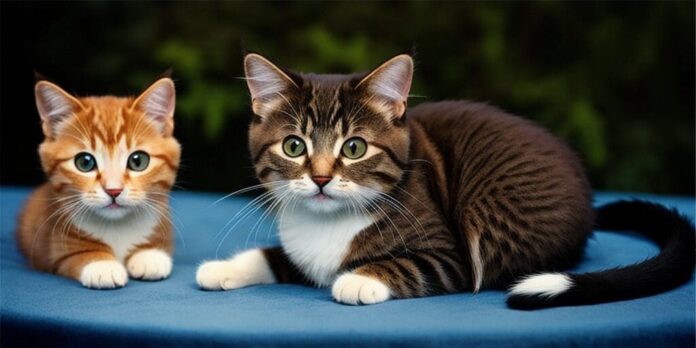Are you curious about the breed DSH? Also known as Domestic Shorthair cats, these lovable felines are America’s most common household companions. In this comprehensive guide we’ll explore everything you need to know about the breed DSH, from their distinctive characteristics to care requirements.
What Makes the Breed DSH Special?
The Domestic Shorthair cat or DSH, isn’t technically a specific breed but rather a classification for mixed-breed cats with short fur. Think of them as the “mutts” of the cat world – but don’t let that fool you! These cats are incredibly special and make wonderful pets. If you’re interested in learning more about different dog breeds too check out our comprehensive guide on various dog breeds.
Physical Characteristics
Size and Weight
- Males: 11-15 pounds
- Females: 8-12 pounds
- Height: 8-10 inches
Coat Colors and Patterns
The breed DSH comes in an amazing variety of colors and patterns:* Solid colors* Tabby patterns* Calico* Tortoiseshell* Bi-color* And many more!
Personality Traits
These cats are known for their:* Adaptable nature* Independent spirit* Playful disposition* Strong hunting instincts* Varied personalities
As noted by Pet like boss, each DSH cat has its unique personality traits, making them fascinating pets to own.
Health Considerations
DSH cats generally enjoy good health due to their genetic diversity However, they may face common feline health issues * Obesity* Dental disease* Diabetes* Kidney disease* Heart problems
Care Requirements
Diet
- High-quality cat food
- Fresh water always available
- Portion control to prevent obesity
- Regular feeding schedule
Exercise
- Interactive toys
- Climbing trees
- Laser pointers
- Window perches
Grooming
- Weekly brushing
- Regular nail trimming
- Dental care
- Occasional baths if needed
Why Choose a DSH Cat?
- Low maintenance
- Generally healthy
- Great for first-time pet owners
- Excellent mousers
- Adaptable to various living situations
Common Misconceptions
Let’s bust some myths about the breed DSH:* They’re not “just alley cats”* They can be just as special as purebreds* Each has a unique personality* They’re not all the same
Tips for Adopting a DSH
- Visit local shelters
- Consider adult cats
- Meet multiple cats
- Observe personality traits
- Ask about health history
Living with Your DSH
Indoor vs. Outdoor
- Indoor living recommended
- Supervised outdoor time
- Enclosed patios or catios
- Window access
Social Needs
- Daily interaction
- Mental stimulation
- Companionship
- Playtime
Training Your DSH
Yes, you can train a cat! Here’s how:* Use positive reinforcement* Clicker training* Consistent commands* Patience is key
Cost Considerations
Initial Costs
- Adoption fees
- Veterinary check-up
- Basic supplies
- Spaying/neutering
Ongoing Expenses
- Food
- Litter
- Regular vet visits
- Toys and accessories
Common Health Issues
While generally healthy, watch for:* Hairballs* Upper respiratory infections* Parasites* Weight issues
Creating the Perfect Environment
Essential Items
- Litter box
- Scratching posts
- Comfortable bed
- Food and water stations
Enrichment
- Vertical spaces
- Hidden treats
- Puzzle toys
- Viewing areas
The History of DSH Cats
These cats have been human companions for thousands of years, developing naturally through:* Natural selection* Regional adaptations* Human interaction* Environmental factors
Final Thoughts
The breed DSH represents the perfect blend of practicality and charm. They’re adaptable, loving, and make excellent companions for almost any household. Whether you’re a first-time cat owner or an experienced pet parent, a DSH cat could be your perfect match.
Remember, while they might not have the prestigious pedigree of purebred cats, DSH cats are wonderful pets with their own unique charm and character. Their mixed heritage often results in healthier, hardier cats with fascinating personalities.
Consider visiting your local shelter to meet some DSH cats – you might just find your new best friend! And don’t forget to check out more pet care tips and advice at Pet like boss for everything you need to know about caring for your furry friend.









